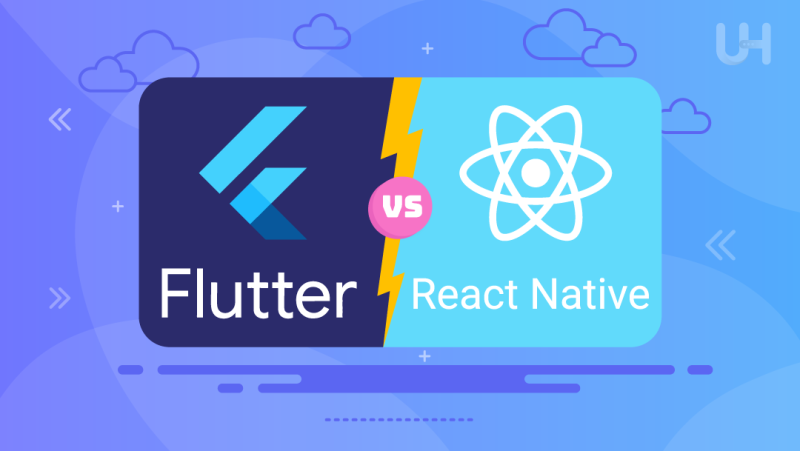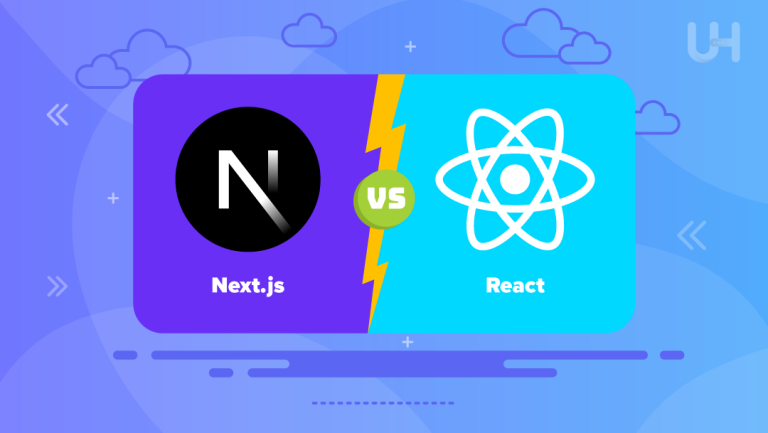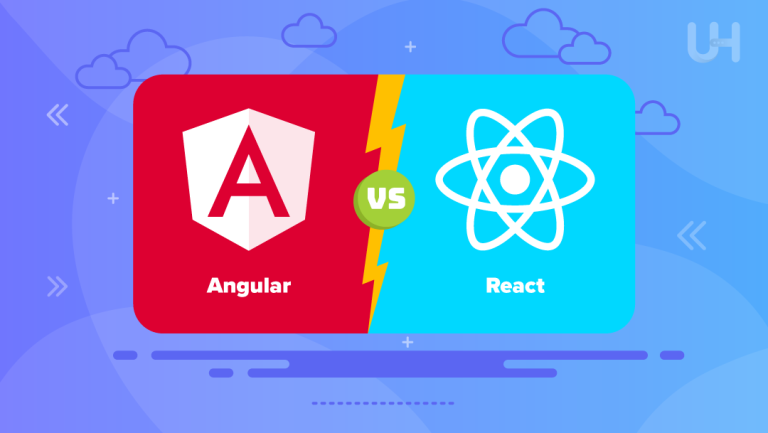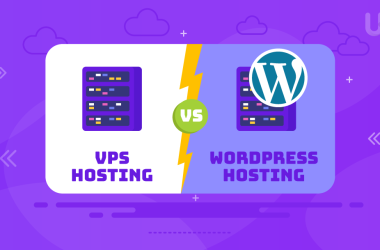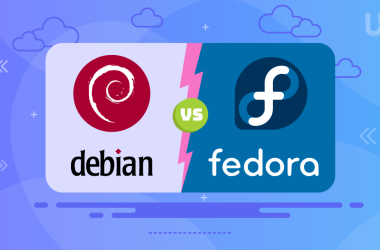Choosing the right framework for mobile application development is one key factor in the success of your project. The two most popular options, Flutter vs React Native, provide much more distinctive benefits. Backed by Google, Flutter’s beauty lies in speed and an expressive UI design. In contrast, with Facebook at its back, React Native benefits from great community drive and easy integration into pre-existing apps.
In the following article, we will review both frameworks so that you can choose which one best fits your development needs.
Flutter vs React Native: Similarities
In the comparative discussion of React Native vs Flutter, both are open-source platforms for mobile app development on cross-platforms. Both platforms use hot reload, a standard feature, and a fully managed dedicated server. The concept of the codebase for multiple mobile platforms, such as Android or IOS, both Flutter and React Native, supports the idea that each platform has the same mobile application. This type of coding made the testing easy for about half of the way because of the convenience of fewer tests in writing for various mobile platforms. Let’s get to the similarities;
Ease of Learning
At the time of development, most developers face the most confusing questions regarding choosing the language between Flutter and React Native.
Most developers chose JavaScript as their primary coding language because it has been around for years and is familiar to React Native users. In contrast, Flutter uses the Dart language, which is relatively new and unfamiliar, extending the developer’s learning curve. However, this doesn’t make Flutter challenging to use, and with time, developers will become more accustomed to this aspect of Google’s platform, making it just as accessible as React Native.
Supporting Community
The later launch of Flutter left developers confused about the differences between Flutter and React Native. They have difficulty deciding between them, as both have a vast community worldwide. Flutter has gained a rising community of developers and is constantly making growth. The lower level of immature support doesn’t make the support lower for Flutter or React.
Performance
Performance is the critical factor that Flutter or React both frameworks should consider. In comparison, considering the performances of React Native vs Flutter, Native codes compiled by Flutter and React Native require scripting again and again on the Javascript framework for compiling. Flutter, on the other hand, compiles directly to native ARM code, offering smoother performance. But for optimal app responsiveness, specially in real-time features like chat, live updates, or notifications, choosing the right backend for mobile app is equally important, as it directly impacts speed, scalability, and user experience. If you’re also deciding on the best backend technology for your project, explore the differences between NodeJS and PHP to make a well-rounded choice.
Third-party Libraries vs Widgets
The significant contrast is Flutter or React frameworks on which level rely on third-party libraries. The framework that requires repeated refers by developers to the third-party libraries is React Native vs Flutter was developed to carry fantastic widgets and libraries in a number that allow identical rendering of user interface for both Android and IOS to mobile application development. The testing of widgets in Flutter, no doubt, makes the Flutter app testing more effortless for the developer of Flutter and React Native developers again relying on third-party libraries and tools for testing.
Support in Documentation
The more informative and detailed framework and great reference resources for cross-platform developing experts are Flutter vs React Native it doesn’t lack much documentation support because it keeps the content longer and more diverse. Consider Flutter or React; both are supported; one can have comprehensive support the other gets their developers’ support offer.
Few other Points
- Installation: To speed up the installation process, React Native developers often use NodeJS server packages to manage dependencies efficiently, while Flutter requires additional steps to set up its development environment.
- Development Time: With the fantastic support of widgets, the market is less for Flutter, and React Native needs experienced developers to hire to enjoy benefits.
Experience The Power of Android VPS Hosting!
Looking to build a powerful mobile app but unsure which platform to choose? Whether you opt for Flutter or React Native, UltaHost’s Android VPS hosting provides the speed, security, and scalability your app needs to thrive.
Which is Better? Flutter vs React Native
Cross-platform programs have become significantly more popular in recent years. Which framework, Flutter or React, is preferable for you to select? Both React Native and Flutter can deliver the required outcomes. Let’s compare it with cross-platform advantages to determine which is better.
Code Reusability
Flutter has high reusability, allowing the same code to run on multiple platforms. In contrast, React Native allows for a large amount of code reuse, but occasionally, more complicated features call for platform-specific code.
UI Consistency
Startups and projects that require a uniform appearance across platforms with a single codebase might benefit from using Flutter. React Native, conversely, can contain platform-specific variations and is suitable for quick cross-platform development.
Cost-Effectiveness
Flutter or React are frameworks with almost the same cost-effectiveness. However, choosing either depends on the developer team’s experience level.
Extended Reach
Both have gained significant attention in the Flutter vs React Native match-up. React Native is two years older and has a more extensive user base and more projects in production. Flutter’s performance and Google’s backing help it achieve a more comprehensive reach.
Flutter or React: Head-to-Head Comparison

Which should I select, Flutter or React? Flutter is an open-source tool for creating cross-platform applications with a single codebase. In contrast, React Native is an open-source platform for creating native apps for iOS and Android.
- Android 4.1 and IOS 8 are compatible with Flutter, and Reactive Native is compatible with Android 4.1 and IOS 10
- Another difference between Flutter and React Native is that Flutter makes it easier to build apps that run on iOS, Android, and Windows OS using a single codebase. At the same time, React Native primarily focuses on building native apps for Android and iOS.
- When comparing Flutter and React Native, developers who are familiar with React Native might find Flutter more challenging because of the change in its programming language.
- React Native is the best choice for rapid cross-platform development, whereas Flutter is a better choice regarding consistency for startups and projects.
- Flutter provides higher and better performances, but React Native might require optimization and have variations in performance.
Flutter vs React Native – Evolution
Both Flutter and React Native have evolved significantly since their first releases. Flutter produces native-quality visuals and animations with exceptional efficiency because of its efficient C++ rendering engine. Its single code base, however, makes its apps quite significant because it simplifies maintenance and speeds up the cross-platform development process. It is advised to upgrade often to take advantage of the most recent data privacy patches, bug fixes, and vulnerabilities.
But compared to Flutter, React Native is a better-developed technology with a more extensive community and a broader ecosystem. Because it uses the native rendering engine on every supported platform, its performance could be constrained. Yet many developers find it appealing because of its capacity to reuse code across various platforms, including web, desktop, iOS, and Android. Working with the leading Flutter mobile app development firm guarantees you will receive cutting-edge, seamless solutions that fulfill your business objectives and offer an excellent user experience for lead nurturing.
Building IOS and Android: Flutter vs React Native
Flutter
- It provides a rich set of tools, such as Flutter Inspector and Dart DevTool, and a comprehensive development environment.
- Customized UI components are known as Widgets offered by Flutter
- Flutter supports embedded devices, IOS and Android, and web desktops
React Native
- React Native provides powerful debugging tools and smoothly interacts with well-known IDEs like Visual Studio Code.
- Depends on Native components, which might need to be customized for a platform-specific design.
- Although React Native offers experimental support for web and desktop platforms, its primary focus is on iOS and Android.
Conclusion
Flutter and React Native are robust frameworks, each with advantages and disadvantages. Flutter provides iOS and Android app development and high-performance, aesthetically pleasing applications with a widget-based user interface. React Native, with its big community and JavaScript language, provides a native feel and cross-platform code reuse.
For optimal performance in developing cross-platform mobile apps with Flutter or React Native, consider UltaHost’s affordable dedicated hosting. Experience unparalleled speed, security, and reliability tailored for demanding mobile app development environments.
FAQ
Should I move from React Native to Flutter?
Flutter offers an advantage in testing compared to React Native because of its built-in testing tools, such as the Flutter Driver and Widget Testing.
Why React is called native?
The ‘native’ term refers to specific language extensions addressing Apple’s IOS and Android.
Is Flutter frontend or backend?
Flutter is a cross-platform SDK that can be used to build front-end and back-end applications in various programming languages.
Can I create a website with React Native?
Using React Native on your next web project and experimenting with some of its inherent capabilities can create a dynamic webpage.
Does Flutter use CSS?
Flutter’s widgets are primarily styled with inline CSS, but you can improve your styling with Global CSS, an often-overlooked gem.
Can I run React Native offline?
Offline React Native developers use different technologies, like IndexedDB or SQLite, to let applications store essential data locally on the user’s device.
Is Flutter for Android or IOS?
The Flutter platform is designed to support mobile apps that run on Android and iOS and interactive apps that you want to run on your web pages or the desktop.





